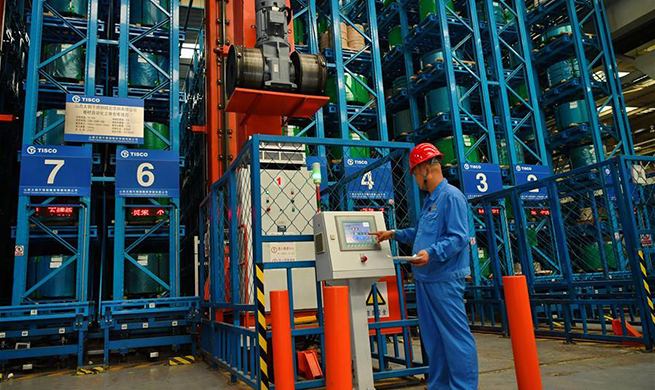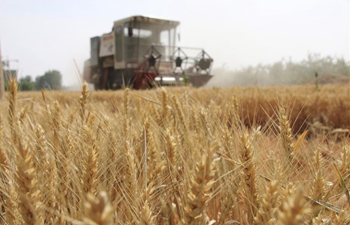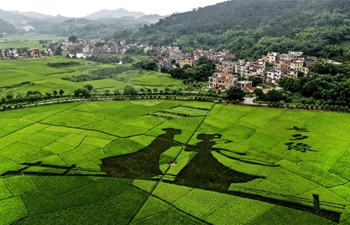NAIROBI, June 4 (Xinhua) -- As the Kenyan government works to produce genetically modified crops, agriculture experts are calling for adoption of alternative food production systems instead, before the country thinks on embracing GMOs.
Kenya is expected to introduce genetically modified cotton, commonly referred to as Bt (Bacillus thuringiensis) cotton, any time soon, with trials for Bt maize set to start.
The introduction of the cotton follows a directive by President Uhuru Kenyatta in June 2018, asking technocrats in the health and agriculture ministry to explore the farming of the cotton in bid to boost the textile industry.
Further, Kenya is in the next few months expected to make a decision on whether to lift a ban on genetically modified food imports, which has been in force since 2012.
The genetically modified plants have been fronted as the panacea for falling food production in the east African nation amid growing effects of climate change that include rise in pests and diseases.
But agriculture lobby groups note that before Kenya adopts GMOs, it should explore, invest in and research on alternative food production systems such as agro-ecology and organic farming.
"We should embrace organic farming by investing in research and explore ways to make it more popular to produce food that is safe. This mode of farming is key to better nutrition, food security, food sustainability and cares for Kenya's biodiversity," Route to Food Initiative youth ambassador Emmanuel Atamba said at a recent meeting on GMOs and sustainable farming organized by Route to Food Initiative in Nairobi.
He noted that many countries are reaping big through organic farming, with crops selling at a premium.
"Many countries are offering a wide range of organic foods that they are exporting. In Kenya, organic food consumption is catching on, but it is still far behind the global movement, which is what the government should work on before introducing GMOs," he said.
He noted food insecurity is not a problem of quantity of produce, but rather affordability and sovereignty, thus genetically engineered seeds cannot solve this challenge.
"Genetically engineered seeds and crops are presented as a solution to achieving food security in Kenya and Africa, yet there are other forms of agriculture which give the farmer sovereignty and more yields," said Atamba.
Wanjiru Kamau, an agriculture policy expert, said genetically modified seeds and farm produce represent a corporate takeover of Kenya's food systems as opposed to sustainable farming.
"Over-dependence on corporates for seeds and other farm inputs will increase the country's vulnerability to shocks related to food production. It lures farmers into the use of agrochemicals and stands in the way of sustainable solutions such as ecological agriculture," said Kamau.
She observed that GMOs throw farmers into long-term dependencies, undermines critical biodiversity and promotes large-scale industrial agriculture, which exacerbates poverty particularly in a context where the majority of farmers are smallholder farmers.
Simon Mitambo, regional program coordinator at African Biosafety Network, noted that investing in sustainable farming methods such as agro-ecology and organic farming are risk free, unlike GMOs.
However, Theophilus Mutui, acting director for technical services at the National Biosafety Authority (NBA), assured that the institution is working to ensure the environment is protected when Kenya finally adopts GMOs.
NBA is currently conducting a national performance trial for Bt cotton in seven areas, including Kisumu, western Kenya. Bt maize has also been approved to undergo national performance trials, but this is yet to begin, said Mutui.













